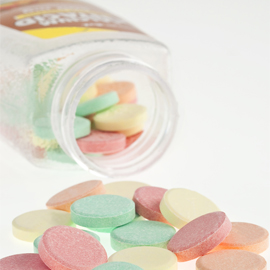
Antacids are a heartburn medication that neutralizes stomach acid to reduce symptoms of reflux disease. This form of medication is available over-the-counter, meaning you do not need a prescription or physician supervision to access them.
As with all other forms of acid reflux medications, antacids for acid reflux are not a cure. This medication works by reducing levels of acid in the stomach and esophagus during instances of heartburn. While often beneficial for those with occasional heartburn, antacids are not a long-term solution for gastroesophageal reflux disease (GERD).
How Antacids Work
The stomach contains corrosive fluids that aid in the breakdown and digestion of foods. To stay protected from these fluids, the stomach contains a layer of mucous that prevents acids from irritating the tissue lining the stomach.
The esophagus, which is the long tube that connects the stomach to the throat, does not have this protective layer, so when acid from the stomach splashes upwards it causes irritation and inflammation that is experienced as heartburn.
Antacids reduce heartburn by suppressing stomach acid, often eliminating the presence of acid outside the stomach. This is accomplished through a mixture of chemicals and minerals that target and neutralize stomach acid. These include magnesium, aluminum and calcium.
Common antacid medications are:
- Alka-Seltzer
- Tums
- Milk of Magnesia
- Maalox
- Mylanta
- Rolaids
- Pepto-Bismol
Antacids are fast-acting, which means they are meant to be taken when the symptoms of heartburn and acid reflux begin. This form of reflux medication cannot prevent heartburn from developing, and is not intended for everyday use.
Potential Side Effects and Risks of Long-Term use of Antacids for Acid Reflux
Stomach acid is necessary for digestion. It aids in the breakdown of vitamins and minerals so they can be properly absorbed into our bloodstream and kills germs present in our food. Antacids reduce the presence of stomach acid, and over time this may interfere with other aspects of your health.
Common side-effects of antacids include:
- Constipation
- Diarrhea
- Gas
- Abdominal cramping
- Nausea or vomiting
Many people who have gastroesophageal reflux disease (GERD) or a hiatal hernia and the symptoms of reflux disease do not experience any relief from antacids.
For this medication to be effective, it needs to be used every time heartburn develops. Those with chronic acid reflux or GERD are often better off seeking long-term treatment solutions, like anti-reflux surgery.



